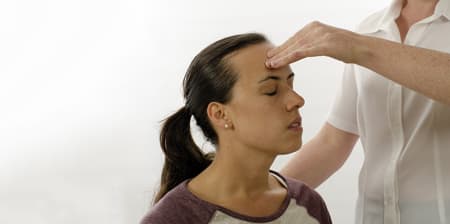
Concussion, often referred to as a mild traumatic brain injury, is a common occurrence in various scenarios, ranging from sports-related injuries to accidents. While rest and observation are primary in the initial stages of recovery, physiotherapy plays a crucial role in aiding concussion recovery, ensuring a comprehensive approach to rehabilitation.
Understanding Physiotherapy
Physiotherapy, also known as physical therapy, focuses on restoring movement and function when someone is affected by injury, illness, or disability. It involves a range of techniques and exercises designed to promote healing, improve strength, flexibility, and mobility.
Role of Physiotherapy in Concussion Recovery
Immediate Post-Injury Phase
In the immediate aftermath of a concussion, individuals often experience symptoms such as headaches, dizziness, and balance issues. Physiotherapists employ techniques to manage these symptoms and prevent further complications. This may include gentle exercises to improve balance and coordination, as well as manual therapy to alleviate muscle tension and stiffness.
Subacute Phase
As the individual progresses through the subacute phase of recovery, physiotherapy focuses on addressing lingering symptoms and restoring normal function. This phase may involve specialised treatments such as vestibular rehabilitation to address inner ear disturbances and oculomotor rehabilitation to improve eye movement control.
Return to Sport Phase
For athletes, returning to sport after a concussion requires careful monitoring and rehabilitation to ensure a safe and successful return. Physiotherapists work closely with athletes to gradually reintroduce physical activity, monitor symptoms, and assess readiness for competitive play.
Techniques Used in Physiotherapy for Concussion Recovery
Vestibular Rehabilitation
Vestibular rehabilitation targets symptoms related to dizziness and balance problems. It includes exercises and manoeuvres designed to retrain the vestibular system and improve balance and stability.
Oculomotor Rehabilitation
Oculomotor rehabilitation focuses on addressing visual disturbances and eye movement problems commonly associated with concussion. This may involve exercises to improve tracking, fixation, and convergence skills.
Exertional Therapy
Exertional therapy involves gradually reintroducing physical activity and exercise in a controlled manner. This helps to improve cardiovascular fitness, endurance, and strength while minimising the risk of symptom exacerbation.
Benefits of Physiotherapy in Concussion Management
Physiotherapy offers several benefits in the management of concussion:
- Comprehensive Approach: Physiotherapy addresses a wide range of symptoms and impairments associated with concussion, promoting holistic recovery.
- Individualised Care: Treatment plans are tailored to the unique needs and goals of each individual, ensuring personalised care.
- Safe and Effective: Physiotherapy interventions are evidence-based and proven to be safe and effective in concussion management.
- Promotes Return to Function: By improving physical function and reducing symptoms, physiotherapy helps individuals return to their normal activities and daily routines.
Challenges in Concussion Rehabilitation
Despite the benefits of physiotherapy, concussion rehabilitation may face challenges such as variability in symptoms and response to treatment, as well as the need for interdisciplinary collaboration.
Case Studies of Successful Concussion Recovery Through Physiotherapy
Numerous case studies highlight the effectiveness of physiotherapy in facilitating concussion recovery, demonstrating improvements in symptoms, function, and quality of life.
Importance of Multidisciplinary Approach
Concussion management often requires a multidisciplinary approach involving healthcare professionals from various disciplines, including physicians, physiotherapists, neuropsychologists, and athletic trainers. Collaboration ensures comprehensive care and optimal outcomes for individuals with concussion.
Future Directions in Physiotherapy for Concussion
Advancements in technology and research continue to enhance the field of physiotherapy for concussion. Emerging interventions such as virtual reality therapy and wearable sensors hold promise for improving assessment, treatment, and monitoring of concussion.
Conclusion
Physiotherapy plays a crucial role in concussion recovery by addressing symptoms, restoring function, and promoting a safe return to activity. Through a combination of specialised techniques and personalised care, physiotherapists help individuals navigate the challenges of concussion and regain their quality of life.
